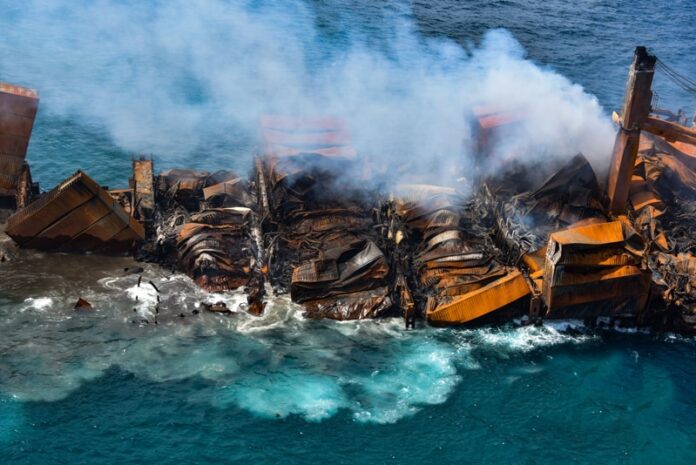In a powerful and unprecedented verdict, the Supreme Court of Sri Lanka has ordered a landmark compensation of USD 1 billion from those responsible for the MV X-Press Pearl maritime disaster, calling it a preventable environmental tragedy that exposed deep institutional failures and violated citizens’ fundamental rights.
Delivering its judgment on a set of consolidated fundamental rights petitions—including those filed by the Centre for Environmental Justice (CEJ) and Colombo Archbishop Malcolm Cardinal Ranjith—the Court found both foreign parties and local officials grossly negligent in Sri Lanka’s worst maritime environmental catastrophe.
The MV X-Press Pearl, a Singapore-flagged container vessel, caught fire off the coast of Colombo in May 2021 while carrying hazardous cargo including nitric acid. The delayed response to a reported chemical leak and the suppression of critical safety information contributed to the vessel sinking on June 2, 2021, releasing toxic materials and plastic pellets that devastated marine life and the coastal ecosystem.
The Court declared the ship’s owners, operators, and local agents jointly and severally liable, citing gross negligence, concealment of crucial information, and breaches of international maritime regulations such as MARPOL and SOLAS. Applying the “Polluter Pays Principle,” the Court ordered them to pay USD 1 billion in damages to the Sri Lankan Treasury, with an initial payment of USD 250 million due by September 23, 2025. Further payments are expected as a full damage assessment is completed.
However, the judgment also severely criticized key state actors. The Marine Environment Protection Authority (MEPA) and its former Chairperson Dharshani Lahandapura were faulted for failing to fulfill statutory responsibilities, issuing vague directives, and not summoning the MEPA board.
The Court censured former State Minister of Urban Development and Environment Nalaka Godahewa for not forming the legally required Marine Environment Council. The Attorney General’s office faced harsh rebuke for choosing to file the compensation case in Singapore instead of Sri Lanka, and for failing to bring criminal indictments, actions the Court described as irrational and damaging to national interest.
These institutional lapses, the Court ruled, violated the fundamental rights of the petitioners and the public under Article 12(1) of the Constitution.
As part of a broad set of directives, the Court ordered the creation of a dedicated Compensation Commission, a Marine and Coastal Environment Restoration Committee, and a Treasury-managed restoration fund. The Attorney General was instructed to conclude criminal investigations within three months and report quarterly.
In addition, the Commission to Investigate Allegations of Bribery or Corruption (CIABOC) has been mandated to launch a fresh inquiry into alleged corruption linked to the disaster, with interim reports due every three months.
The case remains under judicial monitoring, with the next hearing set for September 25, 2025.
